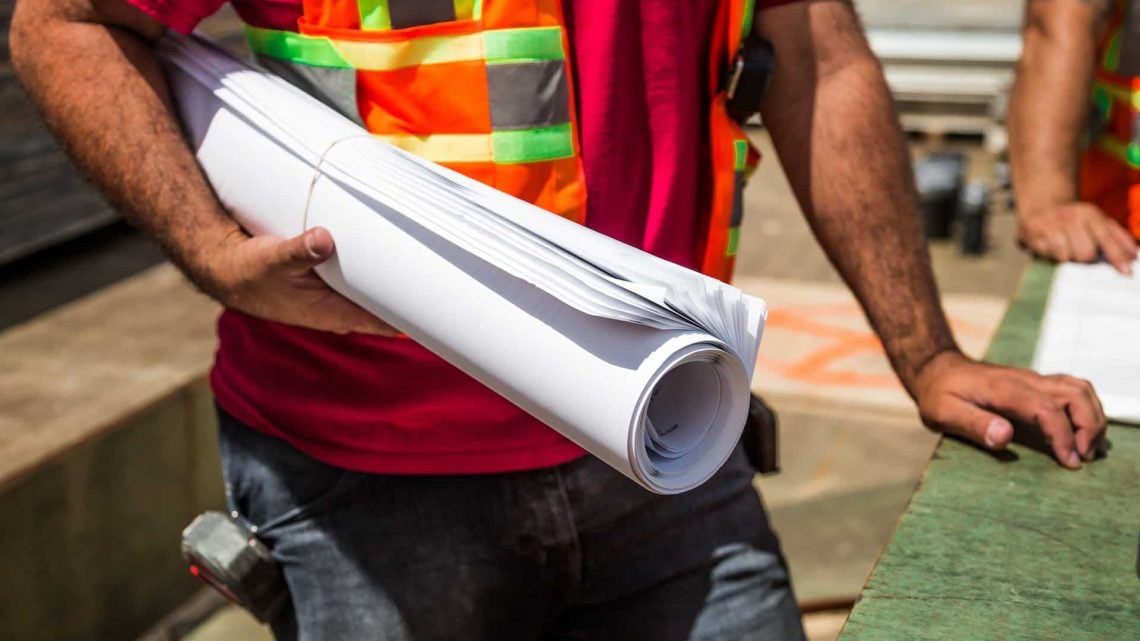In the construction industry, there are many IRS rules that allow for tax deductions that one can leverage to save on business expenses. In addition, there are tax credits that you can apply for and have some of your necessary training and continuing education costs covered.
With that said, let’s dive in and discover the many ways you can save on deductions, credits, and tax breaks if you work in the construction business, starting with the most commonly known and ending with the most overlooked tax deductions for construction companies.
Common Deduction Items
Mileage-related Tax Deductions
Gas is among the most expensive factors when we’re talking about deductible fees. The distance between your drive from your home and your workplace is the distance of your business miles.
What that means is that you can deduct 65.5 cents per business mile in 2023 by using the IRS standard mileage rate. Keep track of all the records, bills, and receipts you get, or simply start using a virtual bookkeeping application such as TripLog to further simplify the process.
Tax Deductions Related To the Tools Bought and (or) Incurred Within the Period of One Year
Vehicle Expenses
Be aware that tax-deductible vehicle expenses only apply to vehicles that were used for business purposes, although the law doesn’t clearly regulate whether it needs to be your company’s vehicle or your own. If you decide not to claim the standard mileage deduction, you may qualify for claiming your actual vehicle expenses. The expenses cover mostly everything but vehicle damage, regardless of who did the actual damage to the vehicle.
Advertising
Many construction companies ask or downright order their employees to advertise the brand. Even if you’re pro-creative and want to engage in promoting the brand’s name on your own, you may be entitled to a tax deduction for any and all marketing or advertising of your company.
Small Tools
The law regarding the definition of small tools is pretty universal in most countries. Moreover, many modern legislations use more sophisticated terms and split this category into two segregated segments – hand tools and power tools, both of which are tax-deductible within the period of one year of being bought and/or incurred.
Related: 5 Apps Guaranteed To Improve Employee Productivity
The term “hand tool” generally refers to tools like screwdrivers, trowels, knives, crimpers, brushes, and clamps. In fact, the lists are usually not closed, so any similar tool that could be handheld falls under the same category. Additionally, some countries also include the category of general tools which are usually used in this line of work, such as shovels or hammers.
Now, the situation with power tools is slightly different, mainly because it’s hard to differentiate them from machine tools (heavy machinery) due to their similar nature. By definition, power tools are tools that require fuel, compressed air, hydraulic power, or electricity. This category includes saws, drills, breakers, cutters, and mixers.
Tax Deductions Related To Tools Bought and/or Incurred Within the Period of More Than a Year
Cement Mixers, Compressors, and Ladders
Most countries do not include cement mixers, compressors, and ladders in heavy machinery mainly due to the fact that they cost more and are purposefully built to last for longer periods of time (increased durability and intended lifespan).
That being said, you are not bound by a period of one year after the taxes come up.
- In the worst-case scenario, you will have at least 18 months
- In most cases, two to three years
- In the best-case scenario, there is no time limit whatsoever
Buildings
It is not uncommon for a construction worker to lend their own buildings for the purposes of the construction company. For example, if the site is just being formed and there’s a supply of small tools incoming, you can lend your own shed or a garage for the purpose of storage until a specialized storage unit is constructed.
In any other case, if any building you own is being used by the company for the line of work the company is operating under, you are allowed to reduce the taxes for the amount of the building being used (for example, the company is using your garage for 3 months, you won’t need to pay taxes for it during that time).
Other Heavy Machinery
Every country has a broad list of other heavy machinery that are not enumerated or closed down. That means that every new piece of technology that emerges on the market and does not fall under the category of small tools immediately gets shifted to the category of other heavy machinery.

Specialized Clothing
Hard Hats, Hard Boots, and Tool Belts
Hard hats, hard boots, and tool belts are generally accepted as specialized clothing for construction workers. If you’ve bought these, or better yet, whenever you’ve bought these on your own account, you can ask your employer to reimburse you.
In the case that your employer refuses to reimburse you for the full amount, you can get a tax discount on the amount that you are missing.
Special Uniforms
The story with special uniforms is slightly different from the previous category because these are usually company-issued uniforms that were specially ordered and tested by professionals operating under the wing (or contracted by) the company you are working for.
In virtually every possible scenario, you are not required to pay for these uniforms as they are a necessity and in turn, need to be provided by your employer. On the flip side, if you do end up paying for them, you can either ask for reimbursement or for a tax deduction in the amount you paid for.
Deductible Fees
Tuition, Subscriptions To Technical Journals, Memberships, and Licensing Fees
In essence, every class you’ve taken this year, every subscription you’ve paid for, every membership revolving around the technical community, and every license you’ve paid for that were necessary for your construction business is able to be claimed for a tax deduction.
GET STARTED TODAY WITH TRIPLOG
Overlooked Deductions/Tax Credits
Tax Credits
Construction workers are sometimes required to undergo required training for work or may just opt into a program for continuing studies to get more skilled at one’s job. For both your ordinary (required) and necessary (optional) education expenses, you may qualify for a tax credit, which will also reduce your tax burden.
- The American Opportunity Credit (up to $2500)
- Lifetime learning credit (up to $2000)
However, applying to any of the education tax credits will disqualify you from claiming any tuition and fee deductions for the associated costs.
Continuing Education/Certificate Programs
As a self-employed construction worker, you can deduct the costs of continuing education in your current career that are not ordinary (usual expense) but necessary (not indispensable). If the program is designed for a pivot in other careers, then the program cost will no longer be deductible. However, remember that you could possibly claim this cost under the tuition and fees deduction discussed earlier.
Interest On Borrowed Funds
Whether or not you get a loan from the bank or your family, relatives, or friends, if you’re using the borrowed funds to buy new construction equipment or for any other business purpose, your annual interest is deductible on your Schedule C. However, it’s imperative that you ensure that the funds are strictly being used for business purposes.
Other Small Deductions
- Legal and professional services
- Health insurance
- Subcontracted labor
- Union fees
- Stationary, pencils, etc
- A portion of your phone charger, pager, and cell phone costs related to business use
- Travel costs between job sites or from a job site to a store for work-related errands, including parking fees and tolls, fuel costs, etc. A mileage tracking app like TripLog can be an effective tool to keep track of all of these travel costs
As a self-employed construction worker, you can save on the significant cost of the business in the form of tax credits or deductions to lower your tax burden each year. It’s very important for all self-employed construction business owners to be aware of all the potential savings and credits that can be leveraged each year to maximize their bottom line.
If you’re part of a larger construction company and receive or provide mileage reimbursement, TripLog also has comprehensive company mileage solutions as well. Try our mileage reimbursement savings calculator and see how much more you could be earning!
To get started with TripLog’s mileage tracker app, schedule a complimentary live web demo, or visit our pricing page to learn more.
GET STARTED TODAY WITH TRIPLOG








